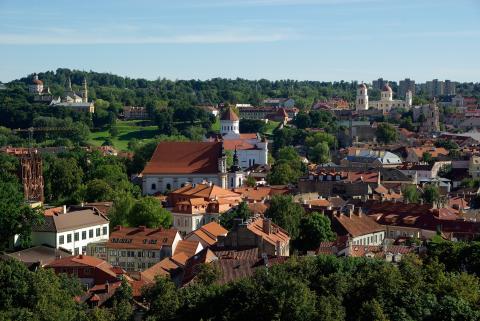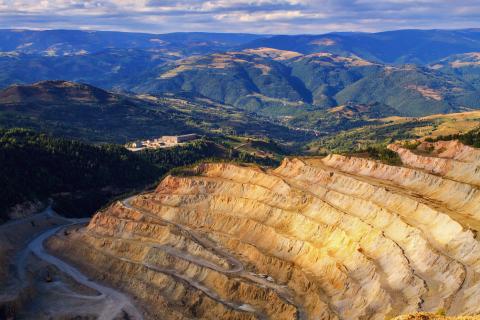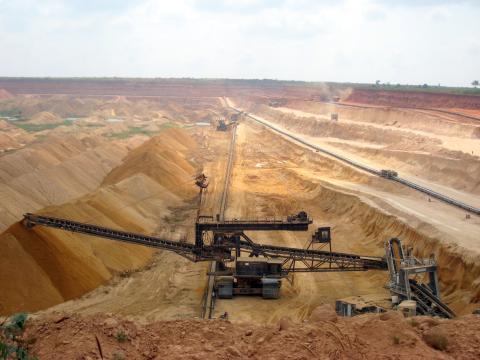
Angola joins the EITI
Africa’s second largest oil producer commits to improving extractive sector transparency
The EITI Board has approved Angola’s application to join the EITI, making it the EITI’s 57th member country and the 28th in Africa.
EITI Board Chair, Rt Hon. Helen Clark, welcomed Angola to the EITI community: “Angola joins the EITI at a critical juncture. The COVID-19 pandemic, ongoing oil price volatility and concerns over energy security mean that governance and transparency need to be at the heart of the country’s energy policies. Angola has an opportunity to use EITI implementation to reinforce its anti-corruption efforts, strengthen the reform of Sonangol, and ensure that the extractive sector contributes to domestic resource mobilisation. We look forward to the EITI promoting inclusive public debate on these issues.”
Angola’s first disclosures in line with the EITI Standard will need to be made within 18 months of being admitted as an EITI implementing country.
Opacity in Angola’s oil sector led to the formation of the EITI in 2003, when calls from civil society advocates to address corruption issues attracted considerable attention. Subsequently, a group of civil society, industry and government representatives – led by the UK government – agreed that a global reporting standard should be developed. However, corruption risks and governance challenges have persisted in Angola over the years, and there have been repeated calls for the country to implement the EITI Standard.
Reporting in line with the EITI Standard will help ensure that crucial information on Angola’s extractive sector will be made public, including beneficial owners and contracts pertaining to extractive companies, as well as the management of state-owned enterprises and sector revenues. Disclosures required under the EITI implementation can contribute to identifying corruption risks, weaknesses in administration and areas of revenue leakages. Ultimately, this information can support decision-making and reforms and promote public debate in Angola.
Attracting investment and improving domestic resource mobilisation
As the second largest oil producing country in Africa, Angola’s economy is heavily dependent on oil and gas production, which accounts for about a third of the country’s GDP. In 2020, oil accounted for about 90% – or USD 18 billion – of the country’s total export earnings. The country also has a significant mining sector with diamond exports totalling over USD 1 billion in 2020.
The Minister of Mineral Resources, Petroleum and Gas, Diamantino Azevedo, said: “Angola took the decision to join the EITI after serious consideration by His Excellency President João Manuel Gonçalves Lourenço in alignment with the administration’s focus on anti-corruption. Implementing the EITI will support government objectives to strengthen transparency and will ensure government assumes political will to strengthen the national instruments of good governance.” He further commented: “With this step, the country intends to continuously improve the business environment and investment climate. This will contribute to mobilisation of revenues and a direct positive impact on Angolans. Angola’s accession to the EITI means the beginning of a new era for the country.”
Angola’s candidature application underscores the government’s commitment to implementing the EITI and provides for significant government funding. Angola’s EITI work plan indicates that the Ministry of Finance, along with key agencies overseeing petroleum and mining regulation, are committed to strengthening systematic disclosure of sector data through government and company platforms.
Sebastião Gaspar Martins, Chief Executive Officer of Sonangol, stated that “Sonangol, as the flagship oil company in Angola is pleased with the country’s admission as a member of the EITI. This milestone reinforced Angola’s commitment, also assumed by Sonangol, to responsibly manage its natural resources for the country’s development and for the benefit of Angolans, with guidance from international best practice.”
Opening the sector to public debate
Beyond disclosures, EITI implementation is expected to contribute to improved public debate and oversight of extractive sector management. As part of its candidature application, Angola formed a multi-stakeholder group – composed of government, industry and civil society representatives – to oversee the EITI process. For the first time, the three constituencies will work together to strengthen extractive sector governance in line with national objectives.
Civil society has a key role to play in fostering public oversight and debate of Angola’s mining, oil and gas sectors. “Civil society looks forward to structured dialogue with government and industry. We are committed to using the EITI space to promote environmental rights and accountability in the management of Angola’s oil, gas and mineral resources” said Manuel Pembele Mfulutoma, General Director of the civil society group AJUDECA and coordinator of the EITI’s civil society constituency in Angola.
Transparency at a critical juncture
Angola joins the EITI at a critical juncture in extractives global governance. The COVID-19 pandemic and recent volatility in oil prices have brought into sharp focus the vulnerability of most extractive-dependent countries and increased calls to engage in the energy transition.
In this context, it will be particularly important for the government to work with civil society and industry to ensure prudent management of the sector. Olivier Jouny, Managing Director of TotalEnergies in Angola and President of the Associação das Companhias de Exploração e Produção de Angola (ACEPA), noted that “ACEPA fully supports this collective effort to continue building and promoting trust with all stakeholders and the civil society. Angola’s EITI membership will contribute to foster the sustainable management of mineral and petroleum resources and development of the country.”





